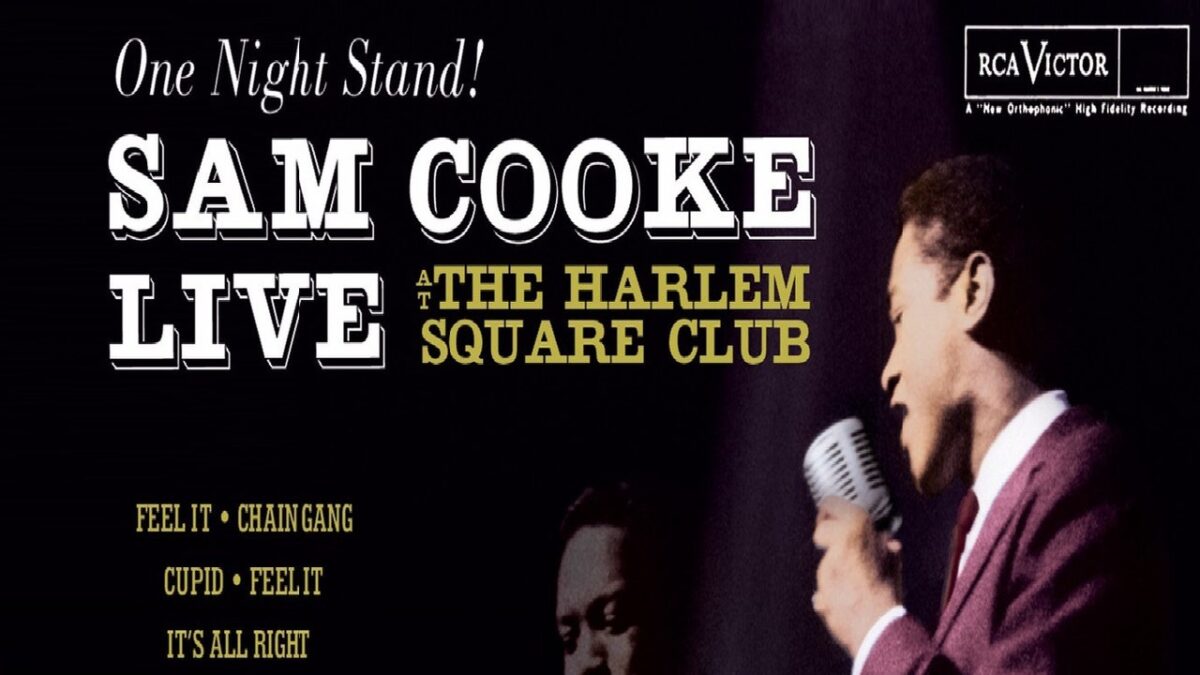
As critic Hilary Saunders has written, One Night Stand! throws “the party of the century on the eve of destruction.” Six months after its recording, Cooke’s 18-month-old son died in a drowning accident. In October, Cooke was turned away from a Shreveport, Louisiana, hotel in the events that inspired “A Change Is Gonna Come.” The following February, again in Miami, he met with Muhammad Ali and Malcolm X. By the end of 1964, Cooke was gone.
Before Cooke’s passing, he did release one live album, 1964’s Sam Cooke at the Copa, a slick set so Las Vegas-ready that it’s introduced by Sammy Davis Jr.; one jarring highlight is a hepcat-paced “Blowin’ in the Wind” cover. Cooke’s manager prior to his death was Allen Klein, the infamously pugnacious impresario who later feuded with the Beatles and the Rolling Stones, and that fact seems to partly explain why One Night Stand! sat in the vaults until RCA brought in a new head of A&R in the mid-’80s. Indeed, several of Cooke’s albums were long out of print, including the album with “A Change Is Gonna Come.” When this live set was finally issued in 1985, as Live at the Harlem Square Club, 1963, amid a spate of archival soul releases, critics took notice, sending the 22-year-old recording to No. 11 on the Village Voice’s 1985 Pazz & Jop poll.
Although Leslie Odom Jr. gives an emotional performance as Cooke in a 2020 film, One Night in Miami…, dramatizing the 1964 encounter with Muhammad Ali and Malcolm X, there may be a reason that no one has yet made a biopic about Cooke alone. His lofty mission, combined with the brutal indignities of Black stardom in ’50s and ’60s America, meant that he was constantly recalibrating, his innermost thoughts tucked away deep: a soul cipher. He was complicated. Even to his intimates, Cooke was, as biographer Guralnick wrote, “someone who could mask everything but his ambition.” As a little boy, he pretended popsicle sticks were his audience. By the time he was 9, he told his brother he was never going to work a regular job, just sing and get rich. In one of his final interviews, he spoke earnestly of his “intense desire to make all of my audiences happy.” He also offered an inscrutably open-ended definition of soul: “the capacity to project a feeling.”
In 2000, another version of the Harlem Square Club recording was released as part of the box set The Man Who Invented Soul. If this was your introduction to these performances, as it was for me, you missed out for years on much of the crowd noise that helps make the music feel so alive. The audience’s rowdy presence was restored in a 2005 remaster, which revived the original “One Night Stand” working title, swapped in new cover artwork that shows King Curtis, and is widely available on streaming platforms. If Cooke’s purpose in life was “wooing the world,” as The Independent put it, One Night Stand! is the album that can still pull it off.













